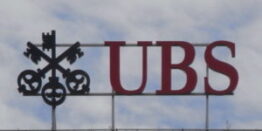
As a result of the three submissions of altered documents in eight years, the Securities and Exchange Commission, or SEC, has ordered the Financial Industry Regulatory Authority, or FINRA, to hire an independent consultant as a means to improve its document preparation policies and procedures.
FINRA was directed to take other remedial measures as well, including organization-wide training of all employees, and remote or on-site visits from FINRA’s Office of Liaison and Counsel before SEC inspections for the purpose of emphasizing the importance of document integrity.
The SEC entered a cease and desist order on Oct. 27, more than three years after the latest incident on August 7, 2008. The director of FINRA’s Kansas City District Office at that time had three records of staff meeting minutes altered just hours before they were given to SEC inspection staff per a document request from the SEC’s Chicago Regional Office.
Inaccurate and Incomplete Records
The alterations made the records inaccurate and incomplete, the order says. Although the SEC did not reveal the person’s name, it said the director resigned on Sept. 20, 2010, the same day that FINRA sent a letter informing the SEC of the problem. The SEC did not reveal anything about the director’s motivation for altering the minutes.
The Kansas City incident was the third time in eight years that a an employee of FINRA or its predecessor, the National Association of Securities Dealers, or NASD, provided altered or misleading documents to the SEC, the order says. While FINRA made efforts to improve its procedures and training since after the first two incidents, these efforts did not prevent the Kansas City director’s subsequent misconduct.
According to her biography on the SEC website, SEC Chairman Mary L. Schapiro was NASD/FINRA chairman and CEO when the Kansas City misconduct took place.
About FINRA
FINRA is a national securities association registered with the SEC pursuant to Section 15A of the Securities Exchange Act of 1934. Located in Washington, D.C., it was created in July 2007 through the consolidation of NASD and the regulation, enforcement and arbitration functions of the New York Stock Exchange.
As such, FINRA is obligated by statute to comply with the Exchange Act and to make sure its members comply with Exchange Act and with FINRA’s own rules. The largest independent regulator of securities firms who do business with the public in the United States, FINRA was overseeing 4,600 brokerage firms with about 163,000 branch offices and almost 631,000 registered securities representatives as of the end of 2010.
Most Recent Incident of Tampering
The most recent incident of tampering began when the Kansas City district office of FINRA received a document request from the SEC’s Chicago inspection staff near the end of July 2008. The request related to a previously announced inspection of the district office, which handles the regulatory programs in Missouri, Kansas, Iowa, Nebraska, Minnesota, North Dakota and South Dakota. The 15 district offices are inspected by the SEC every two or three years, the orders says.
The Chicago staff asked for minutes of district staff meetings that took place between Nov. 1, 2005 and the date of the request. A little more than a week later, right before the district office submitted the minutes to the SEC, the director had an employee alter the minutes for three meetings: One meeting took place on August 28, 2006, one on Sept. 22, 2006 and the last on Jan. 31, 2007. Portions of the minutes were deleted or edited. In some instances, entire passages were removed or changed and the signature of the person who originally drafted the minutes was changed to the director’s signature.
FINRA Was Informed About Alterations
FINRA learned about the alterations thanks to an anonymous whistle-blower complaint submitted in June 2010. The complaint told how the director had another FINRA employee alter the minutes before they were provided to the SEC. Internal audit staff investigated, and based on the results, the director resigned and FINRA sent its letter notifying the SEC.
The order recounts two similar incidents. In 2004, an NASD director misled SEC examiners by providing misdated or otherwise altered documents. In 2005, misleading documents were given to an SEC inspection team, although these documents were supposedly intended for internal use only.
The Kansas City director’s conduct during the latest incident violated Section 17(a)(1) of the Exchange Act, which requires a national securities association like FINRA to make and keep records for prescribed periods, and to furnish copies of such records as the SEC considers necessary. Such records must be complete and accurate.
FINRA Failed to Furnish Complete & Accurate Records
As described in the order, FINRA failed to keep and furnish complete and accurate records, which are essential to its self-regulatory activity. Therefore, the SEC and FINRA agreed to a number of remedial acts.
FINRA Agrees To Make Changes
FINRA agreed to provide training to all of its employees outlining past problems with document integrity, including the Kansas City incident, during which its zero-tolerance policy regarding the alteration of documents will be emphasized.
In addition, FINRA with develop a podcast on document integrity to be shown to all staff and new employees, and will directly address the importance of document integrity at a company-wide meeting, at annual regulatory meetings, and during visits to all district offices by senior management, the order says.
Senior members of FINRA’s Office of Liaison and Counsel will meet with every business unit scheduled for an on-site inspection by the SEC, either in-person or remotely, to emphasize the importance of document integrity.
Finally, FINRA has agreed to hire an independent consultant, subject to SEC approval, within 30 days of the order date. Among other things, the order says, the consultant will conduct a one-time comprehensive review of FINRA’s policies, procedures and training relating to document integrity, assess whether these are adequately designed and implemented to ensure the integrity of documents given to the SEC, and make recommendations for improvement.
The consultant is expected to submit a report to the FINRA board within three months of being hired. Copies of the consultant’s report will also be furnished to the SEC’s deputy director of enforcement, the order says.
The FINRA board will either adopt all the consultant’s recommendations within 30 days, or notify the consultant if there are measures it deems to be unduly burdensome or impractical. FINRA must explain why it finds a recommendation unduly burdensome or impractical, the order says.
The parties are directed to attempt in good faith to reach an agreement as to the recommendations, the order says. If an agreement is reached, the consultant will amend his or her recommendations within 15 days and issue another report, with which FINRA then has 30 days to comply.
If the FINRA board and the consultant fail to agree on a set of recommendations within the 45 days, the consultant’s recommendations become binding and FINRA will have 30 days to comply. After that, FINRA has nine months to certify in writing to the SEC’s deputy director of enforcement that all of the consultant’s recommendations have been implemented. The consultant can give FINRA more time at its discretion upon written request.
As a term of the agreement, FINRA neither admitted nor denied the allegations contained in the cease and desist order.
Guiliano Law Group
The practice of Nicholas J. Guiliano, Esq., and The Guiliano Law Group, P.C., is limited to the representation of investors in claims for fraud in connection with the sale of securities, the sale or recommendation of excessively risky or unsuitable securities, breach of fiduciary duty, and the failure to supervise. We accept representation on a contingent fee basis, meaning there is no cost to unless we make a recovery for you, and there is never any charge for a consultation or an evaluation of your claim. For more information contact us at (877) SEC-ATTY.







